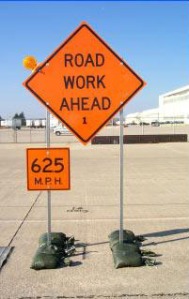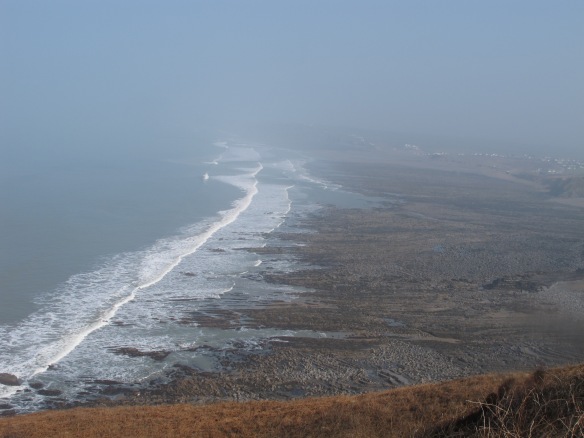How do I know what the world wants to know about Britain? By taking a quick dip into the search questions that bring people to Notes.
Does that constitute a biased sample? Absolutely. I only see search questions related to topics I write about. So yes, this is completely unscientific. Will that stop me? Absolutely not.
Repeat topics
Tutting: In my latest batch of questions, I found three about English tutting. Now, if you’ve never been tutted, you don’t live in England. Tutting is the way the unwritten rules are enforced. You butt in at the head of the line? Someone tuts you and your soul quietly withers. It’s not a subtle thing, but compared to what an American would do—“Hey, buddy, the rest of us have standing been on line here for, like, half an hour. How about you get to the back?”—it seems that way. It works best if you’ve been brought up to dread it, but even we barbarians know when we’ve been tutted and we don’t like it.
Lawyers’ wigs: I found the usual scattering of questions about lawyers’ wigs, most of them involving the word silly, including the one that wanted to know if barristers feel silly wearing them. After the first twenty or thirty years, I’m guessing they get used to it.
One writer managed to avoid the adjective and asked where lawyers in the U.K. get their wigs. Now that’s a new take on the subject. They get them at the Lawyers’ Wig Store, of course. Which has a separate entrance marked Courtroom Drama Wig Store. Customers meet in the middle and buy the same wigs but they can’t talk to anyone who came in the opposite door on pain of banishment.
No one ever asks if actors feel silly wearing those wigs.
Brussels sprouts: Now that Thanksgiving is past and the Christmas trees have been delivered to the stores, I’m getting questions about why we (we here being the British, so this is the British looking for information about the British) eat sprouts at Christmas.
Isn’t it strange that someone born and raised in this country is turning—or is directed—to me for an answer? It’s enough to make an anti-immigrant campaigner’s blood run cold. It’s enough, in fact, to make me want to answer, even though my first impulse was not to bother, since I’ve written about it in the past.
For the sake of variety, let’s do multiple choice this year: a) Brussels sprouts cast out intestinal demons that would otherwise trouble a person throughout the coming year. That’s why every British mother insists that her children eat at least one. b) They commemorate the fourteenth disciple, whose name has been lost to history but who was very short, even at a time when humans were closer to my height than to what we now think is standard. He was, in fact, so short they called him Sprout. Beansprouts weren’t known in the West until the 1960s, when the hippies discovered them and decided they’d solve all the world’s problems (you can see how well that’s worked). That was far too late and too fringy for a traditional Christmas dinner, so brussels sprouts it had to be. c) How many other vegetables are ready to pick in December? You eat what you can, then it becomes a tradition. And after that, you make up obscure reasons for it. d) All of the above.
The correct answer is d).
I should note that Thanksgiving isn’t a holiday in the U.K., but Black Friday, the shopping day after Thanksgiving, has been imported, so a non-holiday ends up being a reference point anyway. Anti-immigrant campaigners should be having fits about this but don’t seem to be worried. There’s no understanding some people.
Why the British dislike Americans: I’ve come to think of this as the American Paranoia Corner. Some people at least ask whether the British dislike Americans, but others leap over that step and go directly to why.
So why do they? Because we think everyone hates us, that’s why. It’s not an attractive quality.
Related to this, in an opposites-attract sort of way, is “americans love living in britain.” (Google searches don’t use caps.) Someone else asked, “do americans like visiting britain.” (Google doesn’t use question marks either.) Yes. All Americans, without exception, love living in Britain and like visiting it. We’ll tear each other to pieces about everything else, but we agree on those two things.
Driving: Someone was looking for photos of narrow Cornish roads and someone else typed in a statement, “emmits can’t drive cornwall,” which is true and would still be true if it included the word in. My favorite, though, was cut short, because it was turning into an essay. It reads, “Official length and width of a passing place on single track lane in cor…”
I love this, because it so misunderstands the nature of Cornish single-track roads, which rarely have official passing places. What our narrowest (as well as some of our wider) roads have is wavery sides, as if the edges had been drawn by a drunk or a kid just getting used to crayons, and these make the width vary between narrow and narrower. In the narrow places, you can pass. In the narrower ones, you can’t. If there’s a field gate, you can pull over to let someone pass. If it’s not too muddy, you can get back on the road again.
I have seen passing places consciously carved out from the fields that border the road, but they’re rare and if anyone’s measured them it’s news to me. I’m guessing they were made by farmers for their own convenience.
New and interesting
Music: Somehow a question about Edith Piaf and Les Barker found its way to me, although their names appear here only once, buried deep inside a post about the differences in musical notation in Britain and in the U.S. I’d guess that the poor soul who typed that search was looking for the lyrics to a parody Les Barker wrote of the Piaf song “Je ne regretted rien.” Barker’s version was “Non, no courgettes,” and if you type that into Google you’ll find discussions of male and female courgette flowers and how to grow zucchini, which is American (and Italian) for courgette. Which is British and French for zucchini.
Don’t you learn a lot here? And isn’t it important stuff?
I didn’t go very deep into the list the great googlemaster offered me, but I couldn’t find either my post or the lyrics. Or a recording. Which is a shame, because the song deserves more visibility. Unfortunately, the lyrics aren’t mine to publish, so you won’t find them here, and as a public service I refrain from recording my singing.
You’re welcome.
Notes from the U.K.: Someone asked, “who writes notesfromtheuk.” I might as well confess: Fast Eddie, the cat, dictates it to me, mostly on Wednesdays so I can post it on Friday morning. I can pass it off as my own because he can’t read and wouldn’t bother to if he could.
Thanks, Eddie. You’re a great cat.
Baffling
Two searches are looking for–well, it’s probably better if I get out of the way and quote them. The first reads, “driving throug narrow land writte on note back.” The second corrects that to “driving though narrow land written on note back.”
Narrow land written on note back. Is this the start of a fantasy novel? Is it bad typing? Whatever it means, it’s haunting, but I doubt the searcher found what she or he was looking for. I feel bad when that happens.









